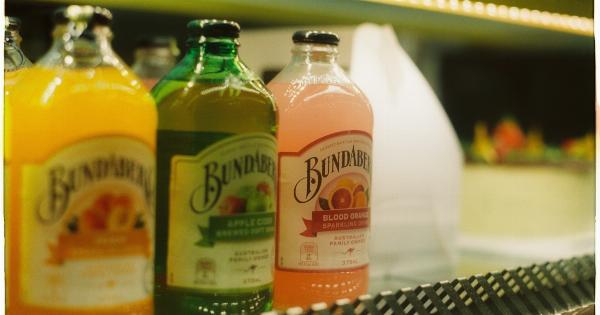When you think of a healthy and convenient option for a quick meal or a side dish, packaged salads often come to mind.
These pre-packaged greens have gained immense popularity in recent years, offering consumers a convenient way to incorporate more fruits and vegetables into their diet. However, have you ever wondered what exactly is in your packaged salad?.
1. Farm-Fresh or Processed?
Many packaged salad brands emphasize the freshness of their products, giving the impression that the greens are plucked straight from the farm and sealed in the bag. While this may be true for some brands, it is not necessarily the case for all.
Some packaged salads are minimally processed and retain much of their original freshness, while others undergo extensive processing and may have been stored for weeks before reaching your plate.
2. The Dark Side of Bagged Salad
While packaged salads offer convenience, their production and packaging process can pose risks. One major concern is the potential for bacterial contamination.
Leafy greens, especially when pre-washed and processed, can be vulnerable to bacterial growth if not handled and stored properly. This is why it is important to check for recalls and follow food safety guidelines when consuming packaged salads.
3. Hidden Additives
Take a closer look at the ingredient list of your packaged salad, and you may be surprised to find more than just vegetables. Many brands add preservatives, flavor enhancers, and other additives to prolong shelf life, improve taste, and enhance texture.
Some common additives include citric acid, ascorbic acid (vitamin C), and even sugar. These additives may not necessarily be harmful, but they do contribute to the overall nutritional profile of the salad.
4. Nutrient Loss
While packaged salads can be a convenient way to increase your vegetable intake, it is important to recognize that they may not be as nutrient-dense as their fresh counterparts.
The processing and storage of packaged salads can lead to nutrient loss over time. Vitamins, such as vitamin C and folate, are particularly sensitive to exposure to light, air, and heat. So, if you’re looking for maximum nutritional benefits, opting for fresh, whole vegetables may be a better choice.
5. Environmental Impact
Another aspect to consider when purchasing packaged salads is their environmental impact. These products often come in plastic bags, which contribute to plastic waste and pollution.
Additionally, the production and transportation of packaged salads involve energy consumption and greenhouse gas emissions. If sustainability is a concern for you, consider buying bulk greens or growing your own.
6. Organic or Conventionally Grown?
Many packaged salad options are labeled as organic, appealing to those who prioritize pesticide-free produce. However, it is essential to note that not all packaged salads are organic.
Some are conventionally grown, meaning they may have been exposed to pesticides and synthetic fertilizers. If organic farming practices are important to you, be sure to look for the USDA Organic seal on the packaging.
7. Freshness Indicators
Some packaged salad brands incorporate freshness indicators into their packaging to help consumers gauge the freshness of the product. These indicators may include color-changing labels or sensors that detect spoilage.
These features can be useful in ensuring that you are consuming salads at their peak freshness.
8. The Price Factor
When comparing the cost of packaged salads to buying and preparing your own salad ingredients, it is important to consider the value you are getting.
Packaged salads offer convenience and time savings but often come at a higher price compared to buying whole vegetables. If budget is a concern, buying individual ingredients and assembling your own salads may be a more cost-effective option.
9. Making Informed Choices
With so many packaged salad options on the market, it’s crucial to be an informed consumer. Read labels, research brands, and stay updated on any recalls or safety concerns.
Additionally, consider incorporating a variety of vegetables into your diet. While packaged salads offer convenience, they should not be your sole source of greens.
10. The Final Verdict
Packaged salads can be a convenient way to incorporate more vegetables into your diet, but it’s essential to understand what you’re consuming.
Be mindful of the freshness, additives, and processing methods used in the production of packaged salads. When possible, opt for fresh, whole vegetables to maximize nutritional benefits and minimize environmental impact.































